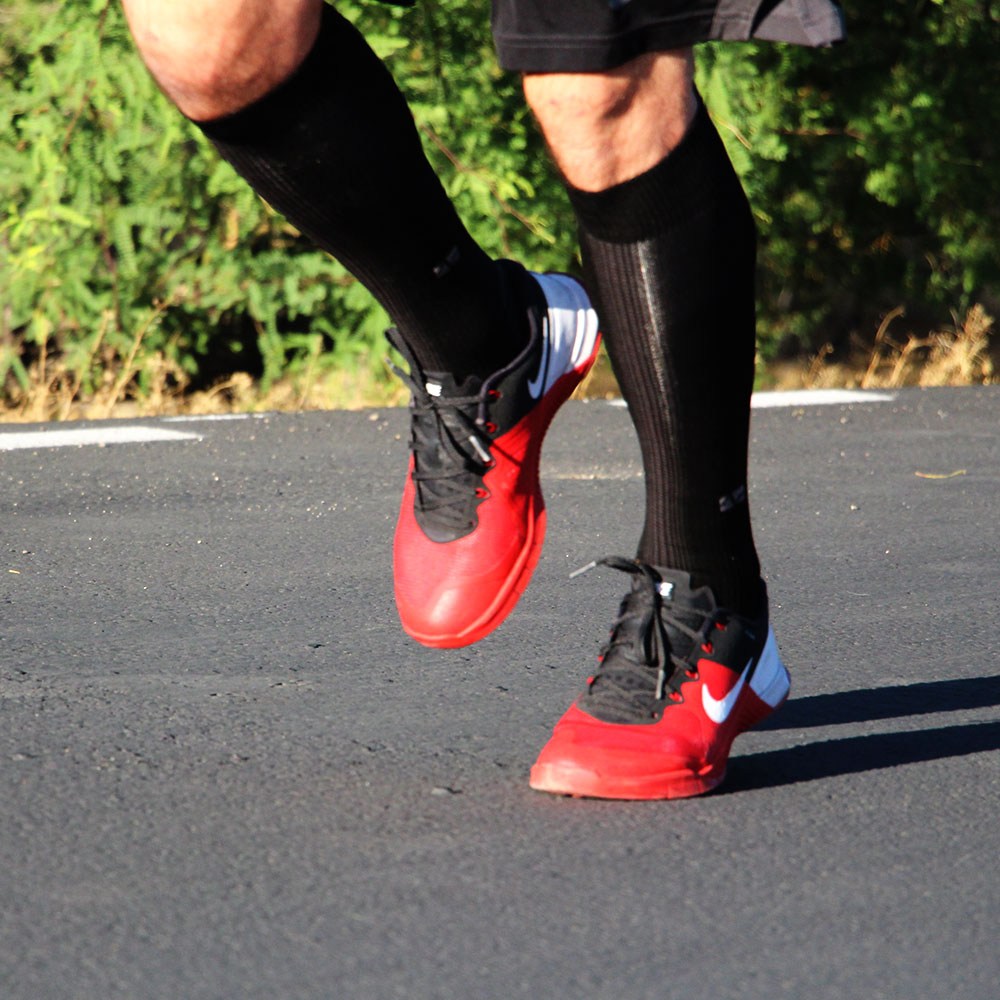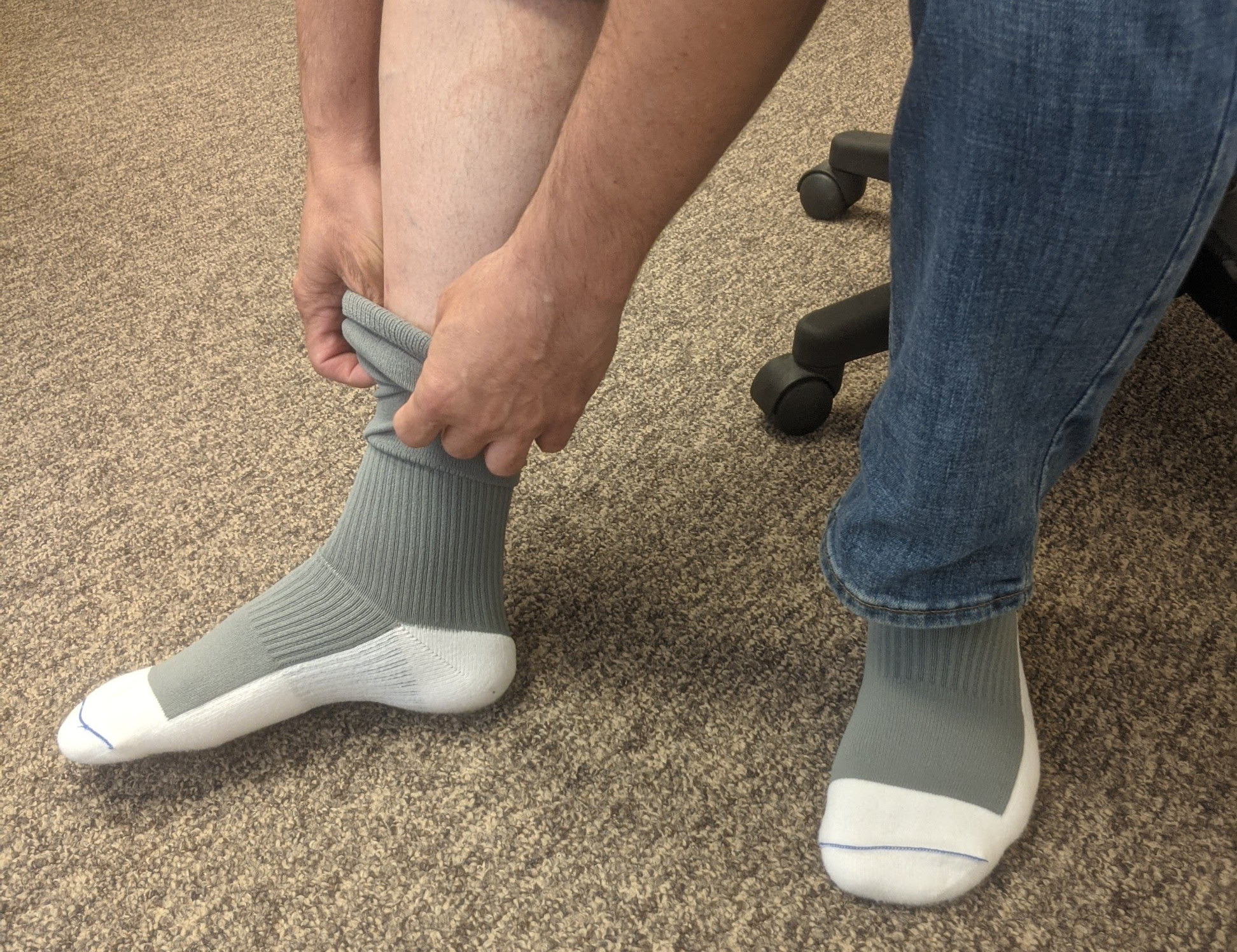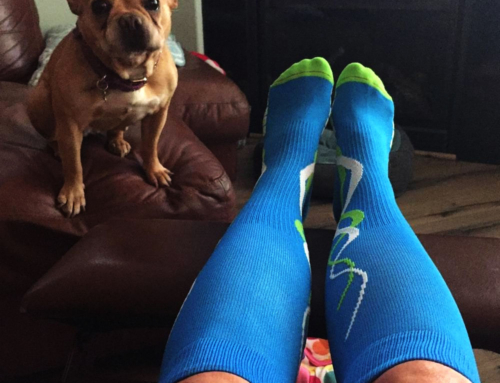Compression Socks Speed up Recovery and Relieves Pain
A sprained ankle is a common injury that can occur during physical activities or even simple everyday movements. It typically involves stretching or tearing of the ligaments around the ankle joint, resulting in pain, swelling, and limited mobility. While proper rest, ice, and elevation are essential for healing, compression socks can be a valuable addition to your recovery routine.
In this article, we’ll explore the benefits of compression socks for a sprained ankle and compression socks can aid in the healing process.
Reducing Swelling with Compression Socks
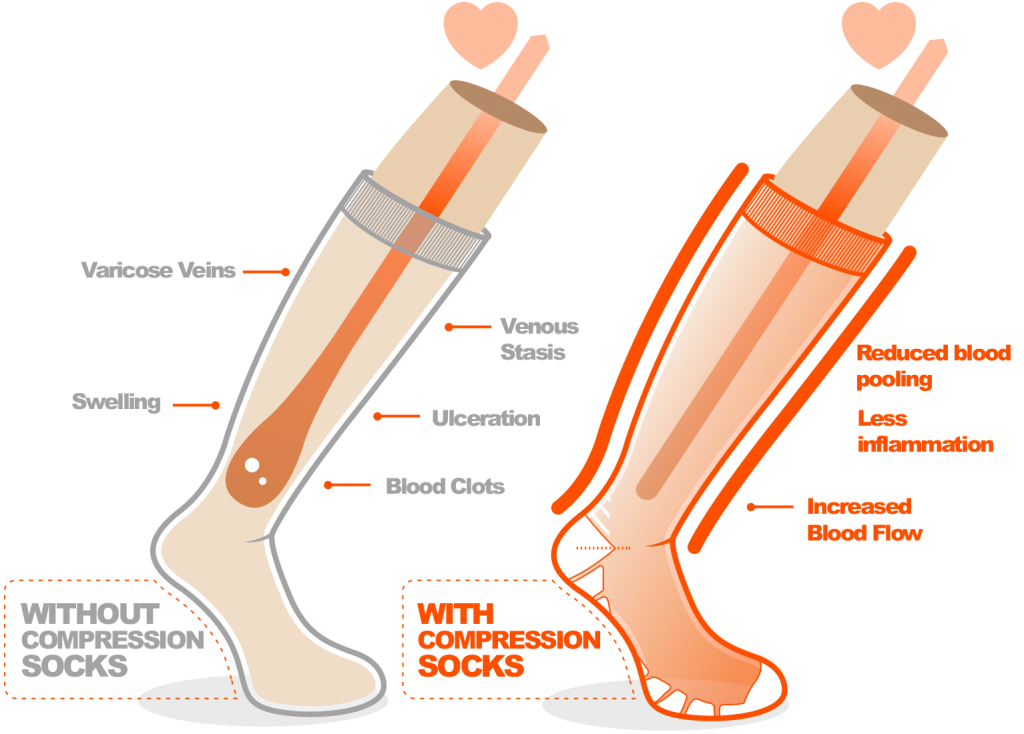
Compression socks are designed to apply graduated pressure to the affected area. “Graduated Pressure” means applying a uniform pressure from the foot up the leg in different grades of pressure as a way to move blood back to the trunk of the body and to stop it from pooling in the legs.
This pressure helps to improve blood circulation and prevents the accumulation of fluid in the injured ankle. By reducing swelling, compression socks can alleviate discomfort and promote faster healing.
Compression socks from Sox Solutions also have the added benefit of providing stability around the ankle. This extra tension supports the ankle and keeps it from further injury, almost like kinesiology tape would do for athletes.
Enhanced Stability and Support
A sprained ankle is often accompanied by instability and a feeling of weakness in the joint. During the first few days after an ankle injury, support is critical. The ligaments in the ankle are sensitive to further injury, so adding some level of support is a good way to promote healing.
Compression socks provide that added support and stability to the ankle and can help in recovery. They can also provide a gentle compression around the arch of the foot, offering additional reinforcement.
Can compression socks help with sprained ankle pain?
Yes! Compression socks can help alleviate pain associated with a sprained ankle. Compression socks apply gentle pressure to the affected area, which can help reduce swelling by preventing the accumulation of fluid. This is particularly important in the early stages of a sprain when swelling is common. The compression also helps to stimulate the release of endorphins or natural pain-relieving hormones produced by the body. By reducing pain, compression socks can improve your overall comfort during the recovery process.
The socks can also improve the range of motion for the ankle, again helping to keep the ankle from being stiff and hurting. After a sprained ankle, the joint may have a limited range of motion. Compression socks provide a gentle compression that can aid in maintaining flexibility and mobility. By promoting blood flow and preventing stiffness, they contribute to a quicker return to normal activities.
Improved Blood Circulation: Compression socks promote better blood circulation, which can aid in the healing process. Improved circulation helps deliver oxygen and nutrients to the injured tissues, facilitating the body’s natural recovery mechanisms.
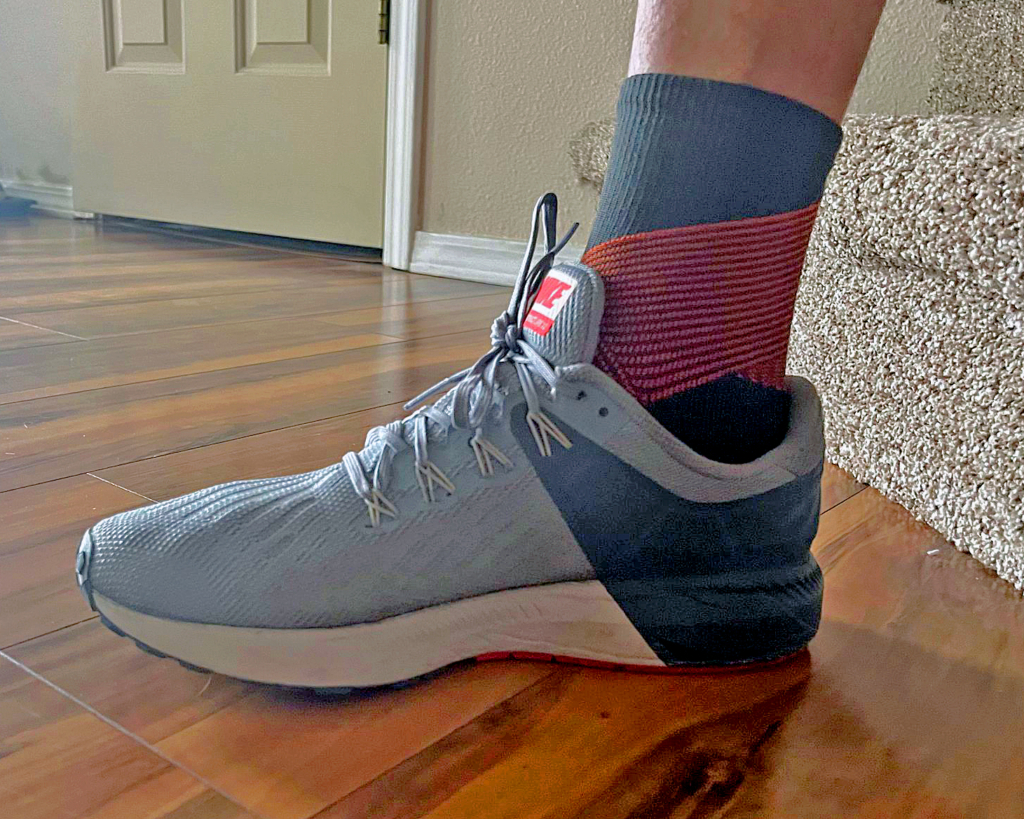
An Aid to Post-Activity Recovery
Once you’ve progressed to the stage where you can engage in light physical activity, compression socks can help your post-activity recovery. Wearing them after exercise or physical therapy sessions can help reduce muscle soreness, inflammation, and the risk of re-injury.
The change of re-injury is always high with a sprained ankle and should be taken seriously. Investing in a pair of compression socks can greatly speed your recovery by reducing your chances of further injuring your ankle.
Summary
Compression socks offer several benefits for individuals recovering from a sprained ankle. However, it is essential to consult with a healthcare professional to determine the appropriate compression level and duration of wear for your specific condition. At Sox Solution, we often suggest that you wear compression socks for no longer than 8 hours at a time. This helps to promote healing without inhibiting blood flow.
Remember, compression socks should complement a comprehensive treatment plan and should not replace proper medical care.
